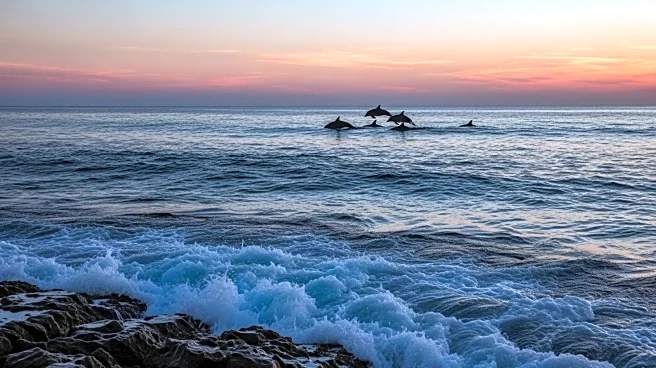What is the story about?
What's Happening?
Conservation organization Sea Shepherd has condemned a recent dolphin hunt in the Faroe Islands, where 285 pilot whales were killed in a single day. The hunt, documented by Sea Shepherd volunteers, included pregnant females and young calves, raising concerns about the accuracy of official counts and the sustainability of the practice. Despite warnings from health authorities about the consumption of whale meat, the hunts continue, driven by commercial motives. Campaigners argue that the practice is cruel and unnecessary, calling for an immediate ban.
Why It's Important?
The dolphin hunts in the Faroe Islands have sparked international outrage and highlight the ethical and environmental concerns associated with such practices. The mass killing of marine mammals not only raises questions about animal welfare but also about the sustainability of marine ecosystems. The continuation of these hunts, despite health warnings and local rejections of surplus meat, underscores the need for stronger regulations and enforcement to protect marine life. The call for a ban reflects growing global awareness and advocacy for the protection of oceanic species.
Beyond the Headlines
The controversy surrounding the dolphin hunts in the Faroe Islands also touches on cultural traditions and the balance between heritage and modern conservation ethics. While some argue that the hunts are a part of cultural identity, the increasing global scrutiny and environmental impact may lead to shifts in public perception and policy. The situation highlights the broader challenge of reconciling traditional practices with contemporary environmental and ethical standards.















